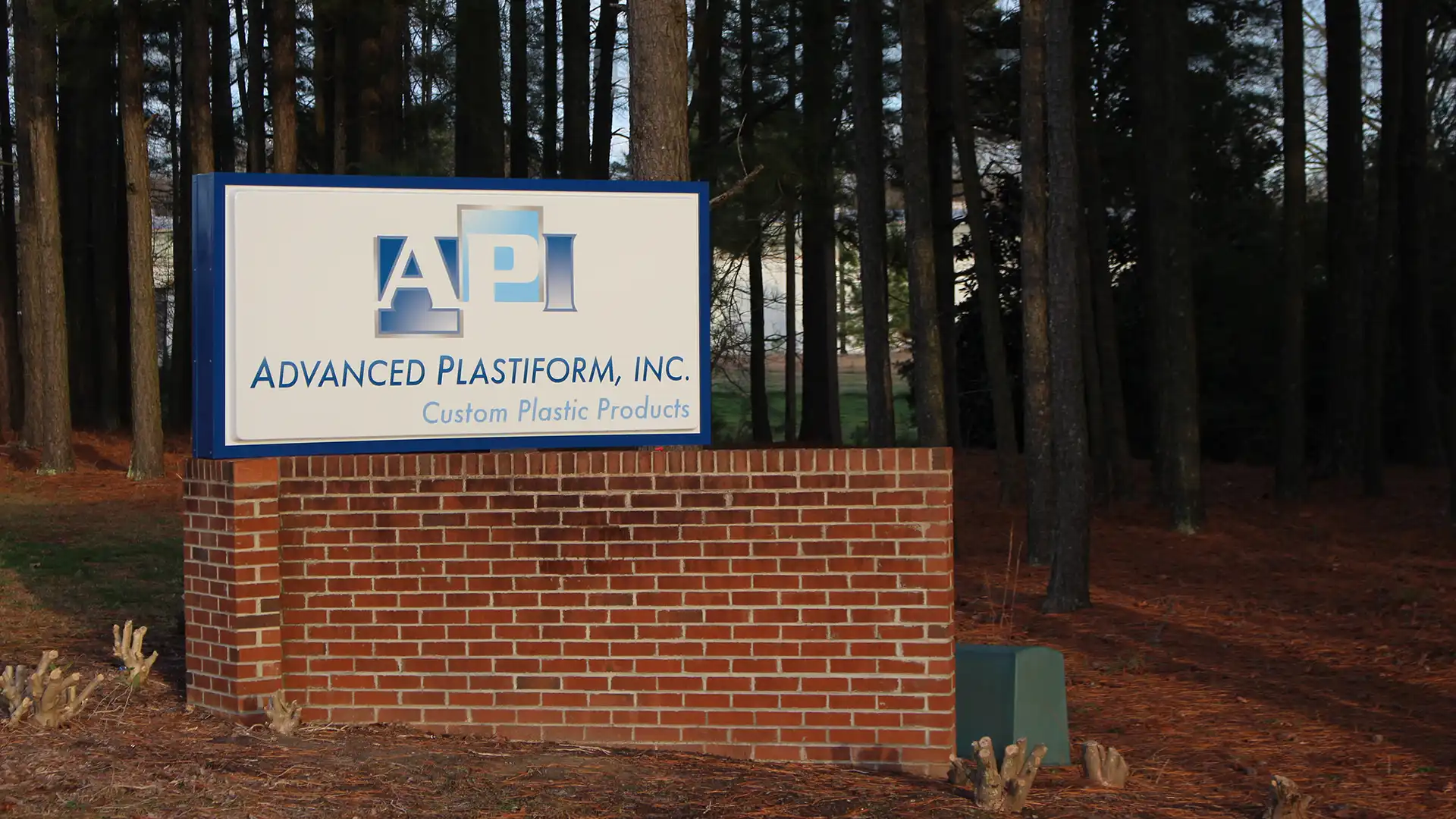High Impact Polystyrene (HIPS) Frequently Asked Questions
Learn more about High Impact Polystyrene (HIPS) and its durability in a range of industries.
Frequently Asked Questions About HIPS
High Impact Polystyrene (HIPS) is a versatile and widely used thermoplastic that is commonly used in the manufacturing of consumer goods and packaging materials. It has gained popularity due to its unique combination of properties such as high-impact strength, rigidity, ease of processing, and affordability. However, with its popularity comes questions and concerns from those who are new to HIPS or are considering using it for their next project.
At Advanced Plastiform, Inc. our experts in thermoforming have decided to answer the frequently asked questions about HIPS that we often receive from consumers and manufacturers alike.
High Impact Polystyrene FAQs
Q: What is High Impact Polystyrene (HIPS)?
Answer: HIPS is a type of thermoplastic material that is derived from the polymerization of styrene monomers. It is a rigid and impact-resistant plastic that is commonly used in the manufacturing of consumer goods and packaging materials.
Q: What are the properties of HIPS?
Answer: HIPS has a combination of properties that make it a versatile and widely used material. It is rigid, impact-resistant, lightweight, easy to process, and has a low melting point. HIPS is also resistant to chemicals, oils, and grease.
Q: What are the common applications of HIPS?
Answer: High Impact Polystyrene (HIPS) is a versatile material that finds applications in a wide range of industries.
Here are some common applications of HIPS:
- Consumer goods: HIPS is widely used in the manufacturing of consumer goods such as toys, household appliances, and office supplies. Its good impact strength and rigidity make it suitable for applications that require durability and dimensional stability.
- Packaging materials: HIPS is commonly used in the production of packaging materials such as clamshell containers, blister packs, and trays. Its ease of processing, low cost, and ability to be molded into various shapes and sizes make it a popular choice in the packaging industry.
- Automotive industry: HIPS is used in the manufacturing of various automotive components such as interior trim parts, instrument panels, and exterior body parts. Its lightweight, impact-resistant, and easy-to-process properties make it a suitable material for these applications.
- Construction industry: HIPS is used in the manufacturing of construction materials such as wall panels, ceiling tiles, and insulation boards. Its good thermal insulation properties and ease of processing make it a popular choice in the construction industry.
- Medical industry: HIPS is used in the manufacturing of medical devices and equipment such as diagnostic trays, sample cups, and packaging materials. Its resistance to chemicals and good dimensional stability make it a suitable material for medical applications.
Q: What are the benefits of using HIPS?
Answer: High Impact Polystyrene (HIPS) is a versatile thermoplastic material that offers several benefits, including:
- High Impact Strength: HIPS offers excellent impact resistance, making it suitable for applications that require durability and toughness.
- Rigidity: HIPS is a rigid material that maintains its shape and dimensions even under stress, making it suitable for applications that require stability and structural integrity.
- Easy to Process: HIPS is easy to process using various techniques such as extrusion, injection molding, and thermoforming. Its low melting point and good flow properties make it easy to mold into complex shapes and sizes.
- Affordability: HIPS is an affordable material compared to other thermoplastics such as ABS and polycarbonate. Its affordability makes it a popular choice for many applications.
- Chemical Resistance: HIPS is resistant to chemicals, oils, and greases, making it suitable for applications that require resistance to chemical exposure.
- Good Thermal Insulation: HIPS has good thermal insulation properties, making it suitable for applications that require insulation against heat or cold.
- Versatility: HIPS is a versatile material that finds applications in a wide range of industries, including consumer goods, packaging, automotive, construction, and medical.
- Recyclability: HIPS is recyclable and can be reused in the manufacturing of new products, reducing waste and conserving resources.
Q: What are the limitations of HIPS?
Answer: HIPS has limited heat resistance and can deform or melt when exposed to high temperatures. It is also prone to UV degradation and may become brittle over time. HIPS is not suitable for high-stress applications or where high dimensional stability is required.
Q: What's the manufacturing process for HIPS?
Answer: The manufacturing process for High Impact Polystyrene (HIPS) involves the following steps:
- Polymerization: The process begins with the polymerization of styrene monomers using a catalyst such as benzoyl peroxide. This process involves the addition of the monomers to a reactor vessel containing the catalyst and a solvent, followed by heating and agitation to initiate the reaction.
- Mixing: Once the polymerization is complete, the resulting polymer is mixed with additives such as impact modifiers, stabilizers, and pigments to enhance its properties and appearance.
- Extrusion or Injection Molding: The HIPS resin is then extruded or injection molded into the desired shape and size. Extrusion involves melting the HIPS pellets and pushing them through a die to form a continuous shape, such as a sheet or film. Injection molding involves melting the HIPS pellets and injecting them into a mold cavity under high pressure to form a specific shape.
- Cooling and Cutting: After the extrusion or injection molding process, the HIPS material is cooled to solidify it and then cut into the desired length or shape.
- Finishing: Finally, the HIPS product may undergo further processing such as trimming, polishing, or surface treatment to achieve the desired finish and properties.
Q: Is HIPS a food-safe thermoplastic?
Answer: Yes, HIPS is food safe and is commonly used in the manufacturing of food packaging materials such as trays and containers. However, it is important to ensure that the HIPS used is certified food safe and meets regulatory requirements.
Q: What is the difference between HIPS and ABS?
Answer: HIPS and Acrylonitrile Butadiene Styrene (ABS) are both thermoplastics, but ABS is a more robust material that has better impact strength, temperature resistance, and dimensional stability than HIPS. However, HIPS is more affordable and easier to process than ABS.
Q: Is HIPS recyclable?
Answer: Yes, HIPS is recyclable and can be reused in the manufacturing of new products. Recycling HIPS helps reduce waste and conserve resources.
Q: Is HIPS a biodegradable material?
Answer: No, HIPS is not biodegradable and can take hundreds of years to decompose in the environment. However, it can be recycled and reused in the manufacturing of new products.
Q: What are the environmental impacts of using HIPS?
Answer: Like all plastics, the production, and disposal of HIPS can have negative environmental impacts. However, HIPS can be recycled and reused, reducing waste and conserving resources. Using recycled HIPS also helps reduce the environmental impact of manufacturing new plastic products.
Q: What is the shelf life of HIPS?
Answer: The shelf life of HIPS depends on the storage conditions and the quality of the material. HIPS should be stored in a dry and cool place away from direct sunlight and heat sources. Properly stored HIPS can have a shelf life of up to two years.
Q: What is the cost of HIPS compared to other materials?
Answer: HIPS is a relatively affordable material compared to other thermoplastics such as ABS and polycarbonate. Its affordability, ease of processing, and good impact strength make it a popular choice for many applications.
Q: Can HIPS be painted or printed on?
Answer: Yes, HIPS can be painted or printed on using various techniques such as pad printing, screen printing, and digital printing. The surface of HIPS should be properly prepared before painting or printing to ensure adhesion and durability.
Q: What are the common color options for HIPS?
Answer: HIPS is available in a wide range of colors, including white, black, gray, and various shades of blue, red, and green. Custom color options are also available.
Contact Advanced Plastiform for Manufacturing Services Using HIPS
If you are in need of high-quality manufacturing services using High Impact Polystyrene (HIPS), then Advanced Plastiform, Inc. is here to help. With years of expertise in the plastics industry, our plastic thermoforming company has the knowledge and capabilities to deliver customized HIPS solutions for your project or product.
Whether you need HIPS parts for your automotive, consumer goods, or packaging applications, our team of experts can work with you to develop and manufacture the right product for your needs.
Contact us today to learn more about our manufacturing with HIPS by calling us today at 919-404-2080 or filling out our contact form to get started.

FAQs About Thermoforming Materials:
Contact Advanced Plastiform, Inc.
Let Us Know How We Can Help!
"*" indicates required fields

